MEDIA RELEASE 20 November 2019
Top accolades, top minds at Research Australia’s Health and Medical Awards
Australia’s biggest hearts and brightest scientific minds have been recognized in Research Australia’s 17th Health and Medical Research Awards, with honours for scientists, doctors and extraordinary Australians who are working to bring life-changing breakthroughs to patients.
Researchers working to dramatically improve the lives of patients with cancer or HIV and make childbirth safer for mothers and babies were among those honoured, as well as the community champions and philanthropists who help bring their work to life.
Research Australia CEO Nadia Levin said the calibre of the finalists demonstrated the strength of Australia’s research sector, with remarkable work emerging from new areas of health and medical study.
“Almost every day, Australian researchers uncover new insights that can change the way we treat or prevent disease,” she said. “Through incredible dedication and skill, these amazing scientists are making an indelible mark on the journey of human progress, with tangible results for the health and wellbeing of us all.
“Australia has a vibrant and innovative health and medical research sector, well represented at last night’s Awards ceremony in Melbourne. We’re honoured to present this year’s winners as an inspiring mix of researchers, advocates and philanthropists who are making a global impact on healthcare and changing lives in the process.”
Federal Health Minister Greg Hunt delivered the keynote speech at the Awards, with an address also given by Research Australia patron Sir Gustav Nossal AC CBE. Federal Opposition health spokesman Chris Bowen and Victorian parliamentary secretary for medical research Frank McGuire were among the VIPs presenting the Awards.
Professor Kathryn North AC was announced as winner of Research Australia’s flagship award, the prestigious Peter Wills Medal, recognising her outstanding leadership in genomic medicine which has helped drive Australia’s international reputation in this field.
Professor North – who is Director of the Murdoch Children’s Research Institute – is playing a key role in integrating genetic testing and diagnosis into standard healthcare, with the aim to shorten diagnosis times, enable early intervention, and provide access to treatment for people with genetic disorders. Through her own research, she has worked to identify new disease genes and improve diagnosis, setting the benchmark for ongoing research efforts.
Associate Professor Jeremy Micah Crook and team (University of Wollongong) were awarded the inaugural Frontiers Research Award for their work using electrical stimulation to produce advanced living human neural tissue, with potentially beneficial applications for patients with neurological disorders such as epilepsy, schizophrenia and Parkinson’s disease.
Dr Christine Keenan (Walter and Eliza Hall Institute) won the Griffith University Discovery Award for her epigenetics work which suggests an existing anti-cancer drug can ‘switch off’ and reverse the inflammation that causes asthma, potentially paving the way for the first targeted treatment addressing asthma’s root cause that would be easy for patients to take.
Pamela Galli graciously accepted the Great Australian Philanthropy Award, recognising the extraordinary generosity she has shown through The Lorenzo and Pamela Galli Medical Research Trust by supporting advances particularly in cancer and child health, helping generations of researchers and patients as a testament to her late husband Lorenzo.
Professor Gordon Lynch (University of Melbourne) won the Advocacy Award for his 18-year commitment to the ABC’s Overnights program, where he translates the latest scientific and medical research into clear messages that can transform people’s health, inspiring millions of Australians to engage with research and recognise the importance of lifestyle factors in better long-term health.
Professor John Lynch (University of Adelaide) won the Data Innovation Award – sponsored by Bupa Health Foundation – for developing the South Australian Early Childhood Data Project which has provided invaluable insight for policy makers and agencies seeking to give children the best start in life.
Professor Libby Roughead (University of South Australia) received the Health Services Research Award – sponsored by the Victorian Government – for her leadership in improving medicine use within our national health services to reduce the risk of patients suffering or potentially dying as a result of problems with their medicines.
The GSK Award for Research Excellence was presented to Professor Brendan Crabb AC (Burnet Institute) for his research into infectious diseases.
Ms Levin said the competition in each category had been fierce, with all nominees displaying tremendous talent in their respective fields.
“On behalf of Research Australia, I would like to thank all our nominees, nominators and members for helping make this night a celebration of the remarkable ability and innovative spirit within this sector,” she said.
“I would also like to thank the organisations who have supported the awards, including University of NSW Sydney, Bupa Health Foundation, Griffith University, GSK, Monash University and the Ingham Institute.”
Research Australia CEO Nadia Levin is available for interviews.
Media contact: Pia Akerman, 0412 346 746. A full list of winners follows.
2019 Research Australia Award Winners
Peter Wills Medal: Named in honour of Research Australia’s Deputy Chairman, Peter Wills AC, a great leader whose work led to the inception of Research Australia. The Peter Wills Medal is the flagship award and recognises someone who has made an outstanding, long-term contribution to building Australia’s international reputation in areas of health and medical research and fostering collaboration for better health.
Winner – Professor Katherine North AC (Murdoch Children’s Research Institute)
Great Australian Philanthropy Award: This Award profiles personal philanthropy that is outstanding in its generosity, effectiveness, vision, high impact and transformative quality. The Award recognises and encourages personal philanthropic donations over a period of time by an individual(s) or family to Australian health and medical research.
Winner – Mrs Pamela Galli (the Lorenzo and Pamela Galli Charitable Trust)
Health Services Research Award: This Award is for an individual or team who has provided leadership and made an outstanding contribution to health services research; driven research that has led to a significant improvement in healthcare; and/or has championed the development of the health services research field. Sponsored by the Victorian Government.
Winner – Professor Libby Roughead (University of South Australia)
Data Innovation Award: This Award recognises an individual or team whose innovation is considered to represent one of the most impactful new data innovations in the HMR sector within the past five years. Sponsored by Bupa Health Foundation.
Winner – Professor John Lynch (University of Adelaide)
Griffith University Discovery Award: This Award recognises an early career researcher (anytime from qualification but no more than 5 years past PhD whose paper/patent/discovery has already demonstrated its importance or impact.
Winner – Dr Christine Keenan (Walter and Eliza Hall Institute)
Advocacy Award: This Award recognises and congratulates exceptional contributions made by research champions who help raise community awareness and understanding about the importance of health and medical research.
Winner – Professor Gordon Lynch (University of Melbourne)
Frontiers Research Award: This Award recognises the success of innovative health and medical research that extends existing knowledge, boundaries and/or understandings within health and medical research.
Winner – Associate Professor Jeremy Micah Crook and team (University of Wollongong)
GSK Award for Research Excellence: One of the most prestigious awards available to Australian researchers, this prize has been awarded since 1980 to recognise outstanding achievements in medical research with potential importance to human health. This year’s Award is accompanied by a grant of $80,000 to further the winner’s research.
Winner – Professor Brendan Crabb AC (Burnet Institute)


 APPLICATION
APPLICATION
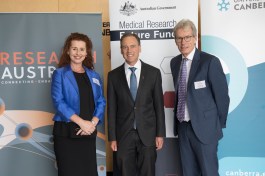


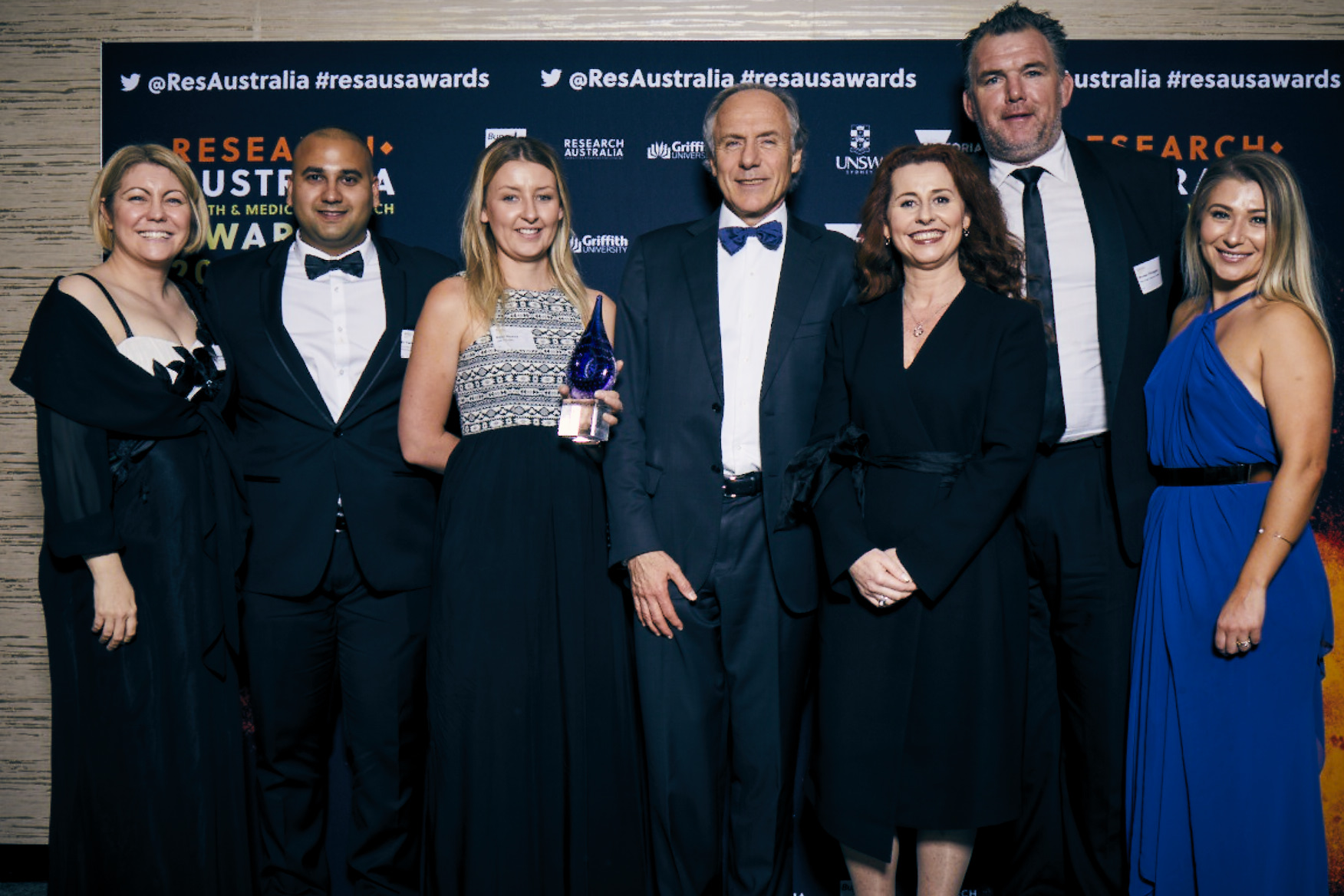
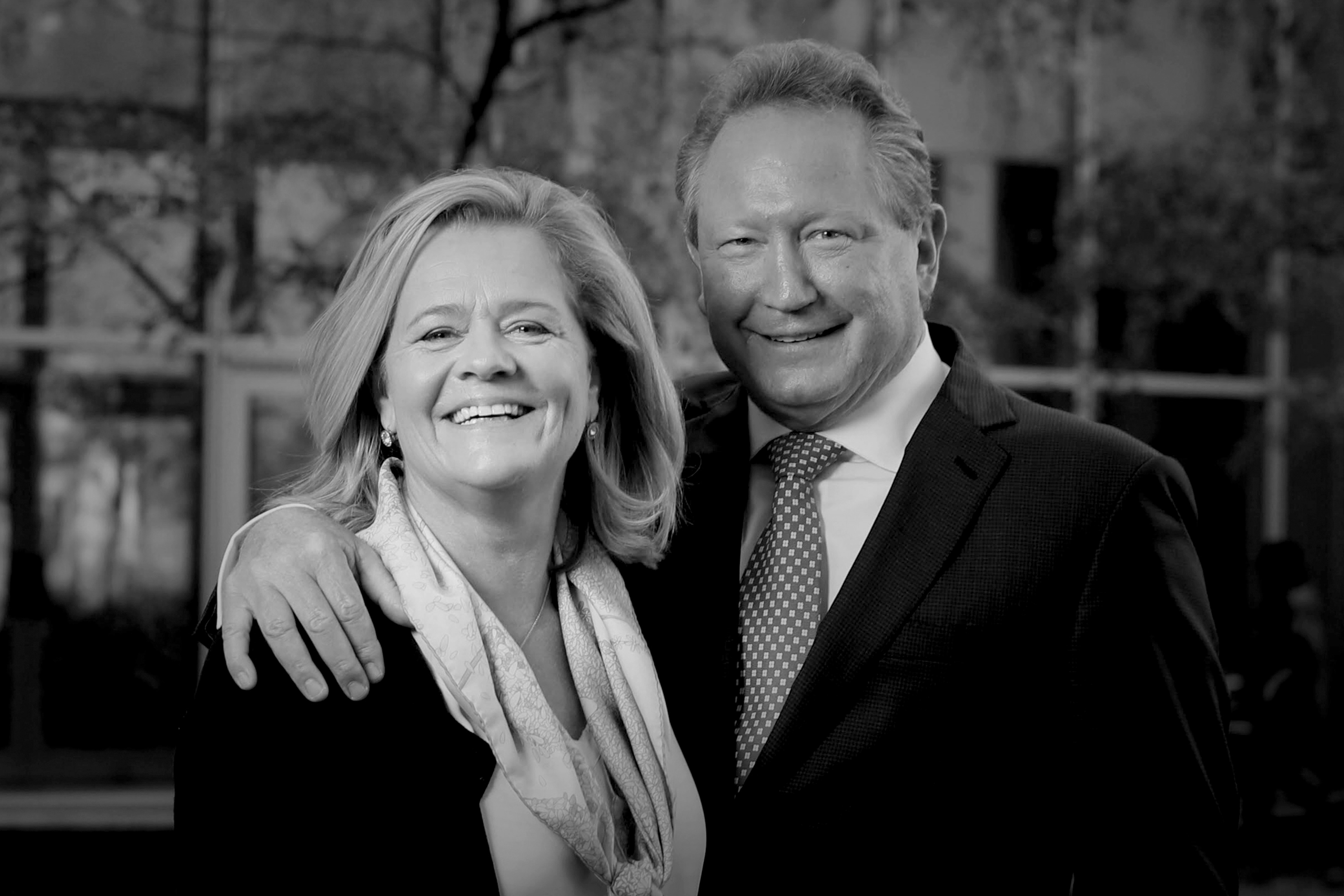
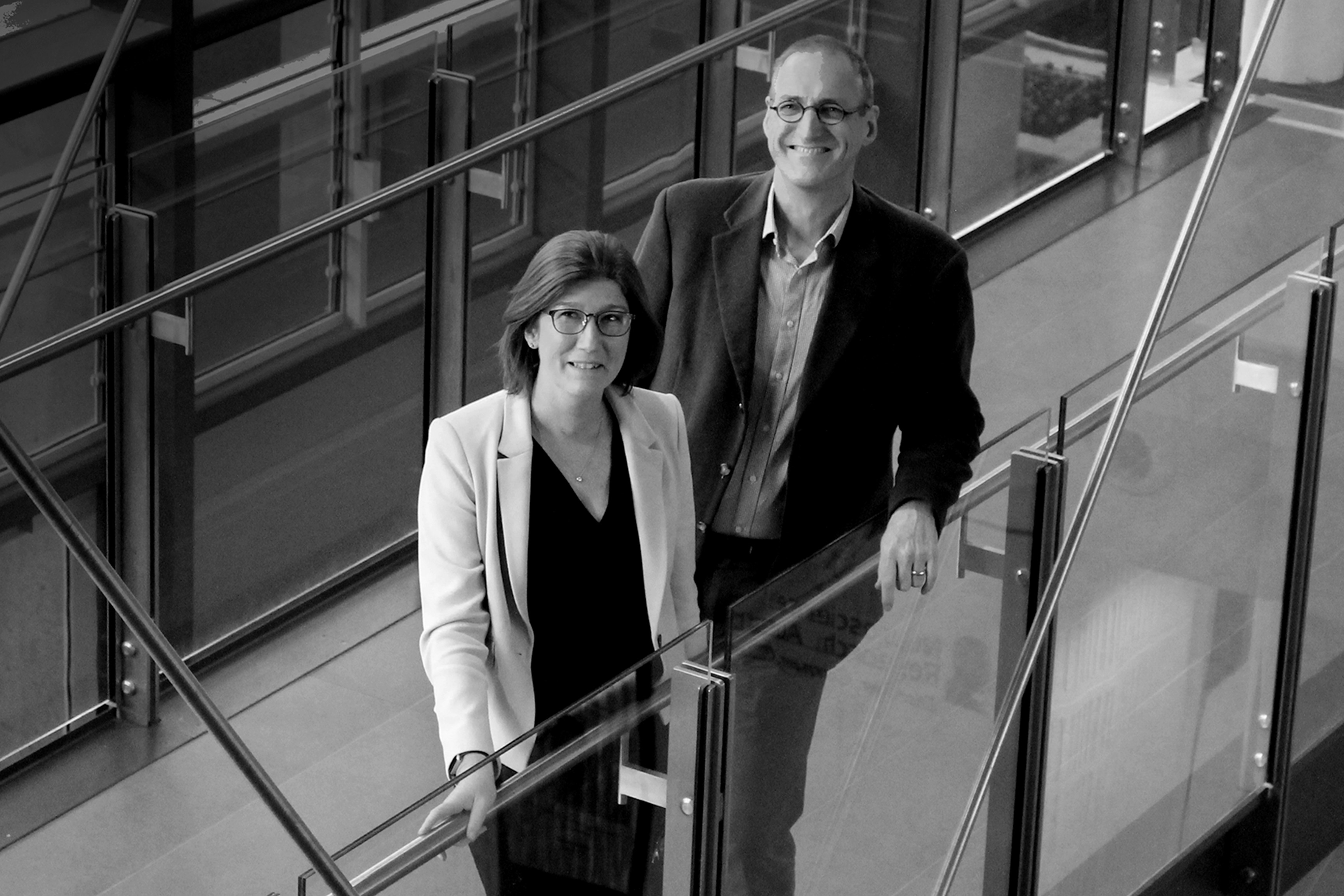
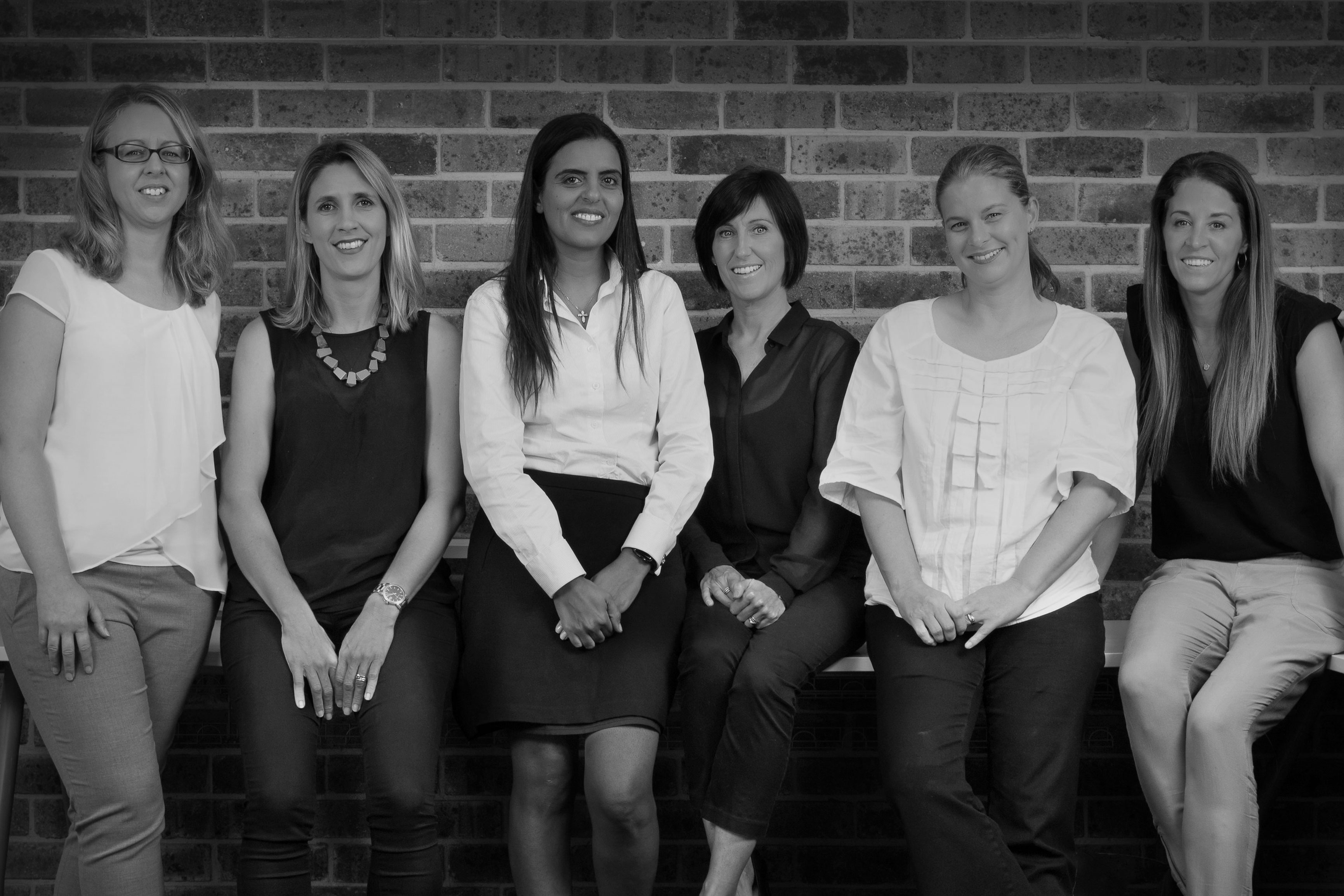
You must be logged in to post a comment.